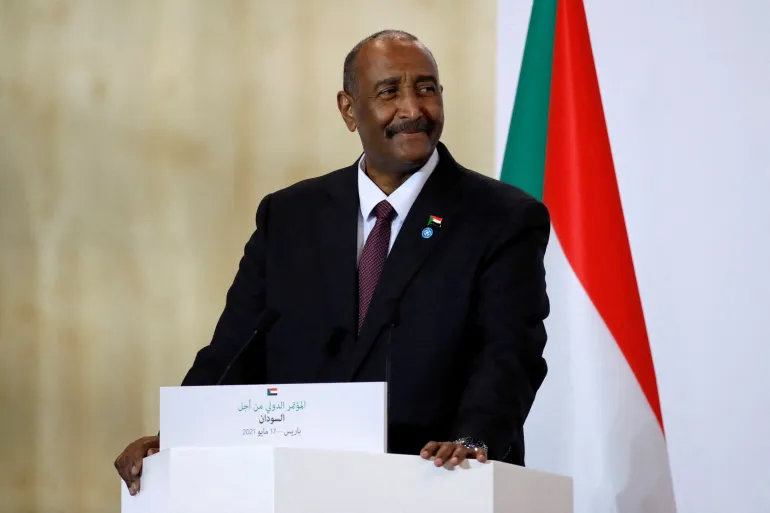Sudan’s army chief, General Abdel Fattah al-Burhan, has criticised “negligent” commanders following the capture of the strategic city of Wad Madani by a rival paramilitary group. The army had faced scrutiny for the perceived lack of resistance during the takeover of Gezira state’s capital, considered a safe haven in the eight-month civil war.
Addressing the matter four days after Wad Madani’s fall, Gen. Burhan publicly stated, “We will hold every negligent commander accountable. Those who were responsible for this withdrawal will also be held accountable without leniency.”

The army has pledged to investigate the surprise withdrawal that allowed the paramilitary Rapid Support Forces (RSF) to seize control of Wad Madani, as aid workers have been evacuating neighbouring areas in anticipation of potential further escalation.
The RSF, engaged in conflict with the army since April, is believed to control nearly 70% of Sudan’s capital, Khartoum, and most of the western Darfur region. Over 300,000 people have fled Gezira, with many seeking refuge in Wad Madani.
Reports indicate that Wad Madani, now under RSF control, has become a ghost town with closed shops, non-functional hospitals, and a lack of army or police presence. Displaced civilians and aid workers from the city have moved to Gedaref, Sennar, and White Nile states.
Islamic Relief Sudan Director Elsadig Elnour, present in Wad Madani during the fighting, described the panicked state of civilians and expressed concern about their resettlement and assistance. Aid operations, previously centred in Wad Madani, have been disrupted since the RSF took control.
Amid fears that the RSF may target Gedaref, east of Gezira, there is growing unease among residents. The United Nations reports that the war has displaced around seven million people, marking the world’s largest displacement crisis. The conflict, stemming from a disagreement over a political transition plan, has caused widespread displacement, humanitarian crises, and ethnically driven killings in Darfur.


